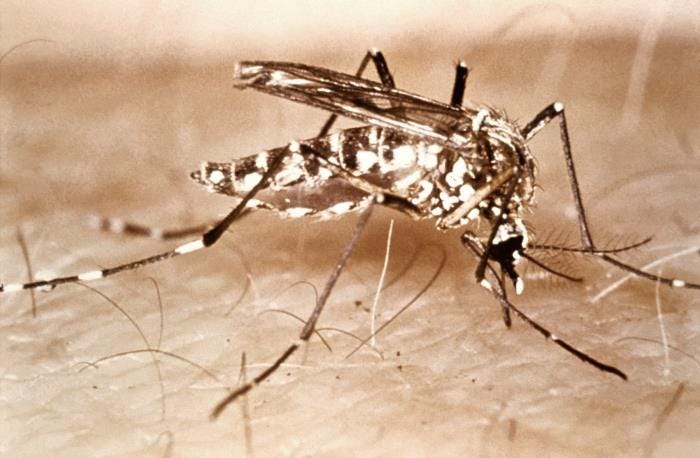In a follow-up on the dengue fever situation in Florida, state health officials reported one additional locally transmitted dengue case in Brevard County on the east coast of Florida.
This is the 34th local dengue transmission in Brevard County in 2025 to date, and the 50th total local dengue case in the state (Brevard (34), Hillsborough, Miami-Dade (14), and Pasco counties).
Thirty-eight cases of the 50 total have been serotyped by PCR: DENV-3 (24), DENV-4 (11), DENV-2 (2) and DENV-1 (1).
There were no reports of dengue acquired in Florida since 1934, then in 2009, a local outbreak was reported in Key West. Since that time, outbreaks and sporadic autochthonous dengue cases have been reported.
In 2024, 91 cases of locally acquired dengue have been reported from ten counties-Broward (2), Hillsborough (7), Manatee (9), Miami-Dade (50), Monroe (3), Orange (2), Palm Beach (3), Pasco (13), Polk, and Sarasota (1) counties.
Subscribe to Outbreak News TV on YouTube
Dengue infection is acquired through the bite of certain species of mosquitoes, primarily Aedes aegypti, but also Aedes albopictus, both of which are present in Florida.
Dengue fever can be a painful, debilitating disease but is rarely fatal. Symptoms appear 3-14 days after the bite of an infected mosquito and include sudden onset of fever, severe headache, eye pain, muscle and joint pain (giving the disease the nickname “breakbone fever”), and bleeding. Gastrointestinal symptoms like vomiting and diarrhea may also be present in some cases. Dengue fever symptoms usually lasts 4-7 days. The disease is often diagnosed incorrectly because the symptoms are similar to influenza and other viruses.
Dengue hemorrhagic fever is a rare but more severe form of dengue infection that can be fatal if not recognized and treated with supportive care. The primary risk factor for hemorrhagic fever is previous infection with a different dengue serotype (i.e. getting DENV-2 if you have already DENV-1 puts you at increased risk of hemorrhagic fever).
There is no treatment for dengue fever or dengue hemorrhagic fever, but quick recognition and management of symptoms and complications is effective at preventing deaths.


